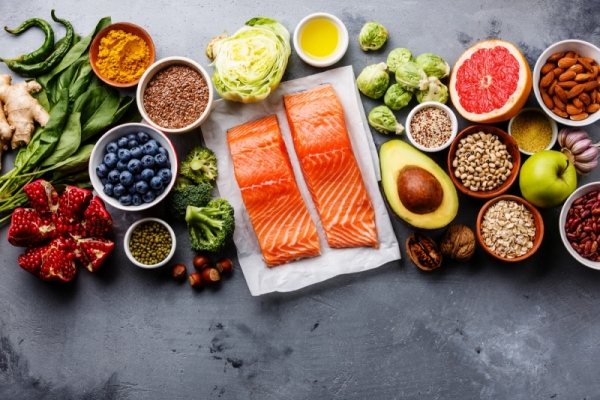When you first make the decision to take control of your health, it may seem intimidating at first. Most people are not getting enough of the important vitamins and minerals, which are necessary for the body to maintain its optimum level of performance. There are a variety of reasons for this but the main culprit is that people are not aware of what they should be putting into their bodies. Although you can get many nutrients from the food you eat, most people are not eating the right kinds of foods to meet their daily requirements. The easiest way to ensure that you are getting all the vitamins and minerals you need is to include a supplement into your daily routine. Consumer Health Review has great information available on the latest products, click here for more information.
Iron
This is one of the most important minerals, which is responsible for the production of red blood cells. People who are deficient in iron often feel weak, dizzy and irritable. A prolonged deficiency in iron may lead to anemia. Good sources of iron include red meats, legumes and beans.

Vitamin B12
A deficiency in Vitamin B is one of the most common reasons why people feel fatigued. This vitamin is only available in animal products and in supplement form. Due to this reason, many people who follow a vegan lifestyle experience Vitamin B12 deficiencies. Although fortified soymilk and cereals are available, it can be very difficult to consume large amounts of these foods on a daily basis. Additionally, Vitamin B12 does not stay in the system for very long, which makes it more important for you to take a daily supplement.
Calcium
This mineral is available in dairy products such as milk, cheese and yogurt. Calcium is also present in cruciferous vegetables and salmon. Calcium is very important, as it is the mineral, which is responsible for strong and healthy bones and teeth.
Fish Oils
This is a fatty acid, which is derived from the flesh of oily fish. Fish oils contain omega-3 fatty acids, which are great for bone health, cholesterol support as well as alleviating symptoms of depression and anxiety. Although one can get omega-3 fatty acids from eating oily fish such as salmon or tuna it is much easier to take a supplement to ensure that you meet your daily requirement.
Vitamin D
This is also known as the sunshine vitamin. Vitamin D is responsible for good heart health as well as the absorption of certain vitamins and minerals and the reduction of inflammation. The most commonly known source of vitamin D is exposure to the sun. However, most people are not spending nearly enough time in the sun to be getting enough vitamin D. A good method to make sure that you are getting enough of it is to include certain foods into your diet. These foods include beef liver, egg yolks, fortified milk, cereals, fatty fish and cheese.
Vitamin C
Vitamin C is one of the key ingredients to a strong immune system. It can ward off infection, assist in recovery from colds and flu and maintain connective tissue, blood vessels and skin. This vitamin is water-soluble and is found in citrus fruits, capsicums, potatoes, broccoli, spinach Brussels sprouts and strawberries. Symptoms of a vitamin C deficiency include muscle and joint pain, fatigue and muscle weakness.
Zinc
Most people underestimate the important role that zinc plays in the human body. Zinc, which is a type of metal, benefits the body in a variety of different ways. It helps hormone production, facilitates digestion and improves the immune system. Another amazing property of zinc is its antioxidant capabilities. Zinc will fight off any free radicals, which could potentially harm the body. You can add more zinc to your diet by eating more meat, shellfish, legumes and whole grains.
Magnesium
Another important mineral you should consider adding to your routine is magnesium. People who are deficient in magnesium often feel anxious, have trouble sleeping and have poor digestion. Magnesium is also responsible for regulating heart rhythms and assisting the functioning of neurotransmitters. Good sources of magnesium are spinach, broccoli, legumes, seeds and whole-wheat bread.




